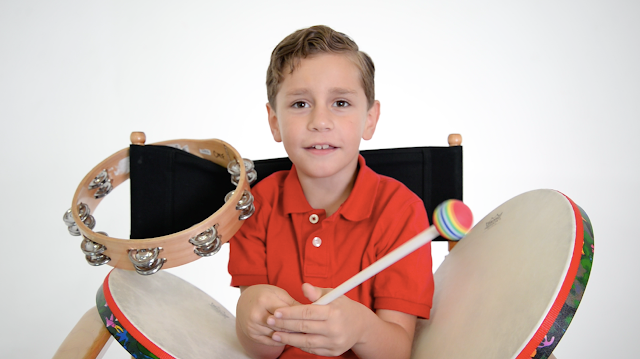 |
| Photo by John Franzen |
April is Autism Awareness Month, so we wanted to share how music therapy can help children on the Autism spectrum, such as 8 year old David (above).
Through music therapy, David hopes to increase his communication skills, reduce stress, and use rhythmic techniques to reduce hyperactivity and increase focus.
Research has shown that individuals on the Autistic Spectrum respond positively to Music Therapy. Additionally, many people on the spectrum have demonstrated an inborn ability to identify and recall pitches by enhanced music processing.
According to the American Music Therapy Foundation, “Because music is processed in both hemispheres of the brain, music can stimulate cognitive functioning and may be used for remediation of some speech/language skills.” Music therapy can also give a voice to those who are completely non-verbal.
Music can also add stability to an individual’s multi-sensory stimulation system. The rhythmic component of music can serve as an overall organizational tool for the complex sensory system. Additionally, Music therapy can assist in stabilizing balance and coordination issues. Rhythm plays a key component to providing structure and predictability for an individual’s gate or walking stride that may otherwise be completely unpredictable.
Music Therapy for Autism also encourages a sense of appropriate identification and expressing of emotions. By listening to an emotional piece of music, a student can then mirror the emotion they hear by practicing facial expressions in the mirror. Being able to visually see the emotion drawn out of a piece of music helps identify a range of emotions that are otherwise hidden.
Help support music therapy programs that aid children on the Autism spectrum reach their treatment goals. Donate or volunteer via www.theCMF.org
No comments:
Post a Comment